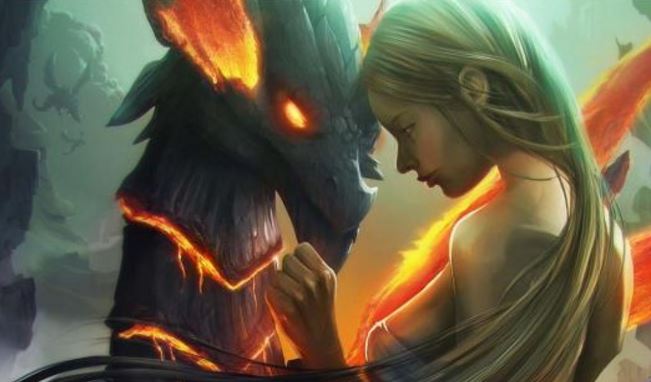“’When I looked into your eyes,’ he says, ‘I caught a fleeting glimpse of something: I saw into that radiant darkness at the center of the universe, the seat of sentience—indeed, born of that sun behind our sun and all suns, far more brilliant than any sun of nature.’ He stops himself here, sits back in his seat.”
Rosemary, a young woman going through a personal crisis, joins a cult called the Paper Army, which may or may not be full of vampires. The cult works to bring about the Final Judgment. That is, when they’re not doing drugs, staging plays, and reciting poetry.
Michael Sajdak’s novelette is difficult to classify. Given that plot summary, one would think this is a horror or urban fantasy story. There are aspects of those genres present, however, the narrative is intentionally cut short, interrupted, and left vague. Sajdak presents the surface of the story and leaves us the reader to determine what’s beneath it. The closest book I can think to compare it to is Jordan Krall’s Humanity is the Devil, except Sajdak’s book is far less dark and experimental.
For example, the first scene in the book has Rosemary carrying a couple garbage bags of her belongings out to the woods and setting them on fire. A pair of firemen interrupt her, scolding her for burning trash there and putting out the fire. It ends with Rosemary looking on the half-burned bags with contempt.
We never learn exactly what was in the bags or why Rosemary was burning them. However, the specifics aren’t too important. It’s a very straightforward symbol about Rosemary working to destroy her past. She doesn’t want to simply throw it away. She wants to destroy any evidence that it existed. This is followed up with her cutting her hair and, not too long after, dropping out of school.
There’s a strong postmodern strain in Voices of the Dead. This is especially obvious in a scene where Rosemary is in a class discussing Anti-Oedipus: Capitalism and Schizophrenia. Rosemary herself isn’t interested in the subject. During the discussion she says, “What’s there to learn, besides a fear of God?” If I did have to put a label on this novelette, I would call it “postmodern mysticist literature.” Sajdak also engages with the poems “The Moth That Made God Blind” by Hart Crane and “Girls on the Run” by John Ashbery, quoting extensively from both. Both of the poems have heavy mystic themes that Sajdak also incorporates in the story.
In one of the scenes, one of the (possible) vampires in the Paper Army cult quotes from “The Moth That Made God Blind.” He seems to be using the poem as an explanation of what the Army’s goals are in a roundabout way. Because of the metaphysical nature of the cult’s goals, they seem either hesitant or unable to explicitly state them. That, or they’re just pretentious. After all, he’s reciting this while the other members are doing drugs, drinking coffee, and taking selfies. There’s a lot of humor in the story as well.
Review copy provided
Some of the coverage you find on Cultured Vultures contains affiliate links, which provide us with small commissions based on purchases made from visiting our site. We cover gaming news, movie reviews, wrestling and much more.



